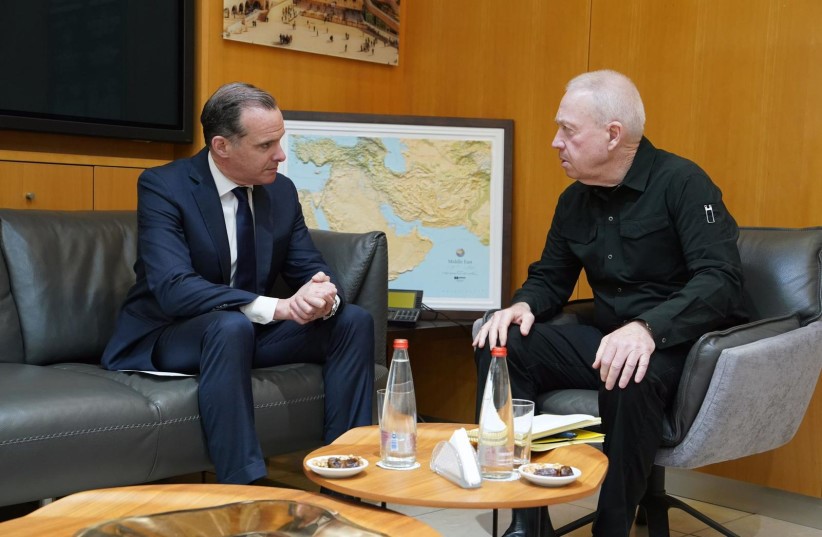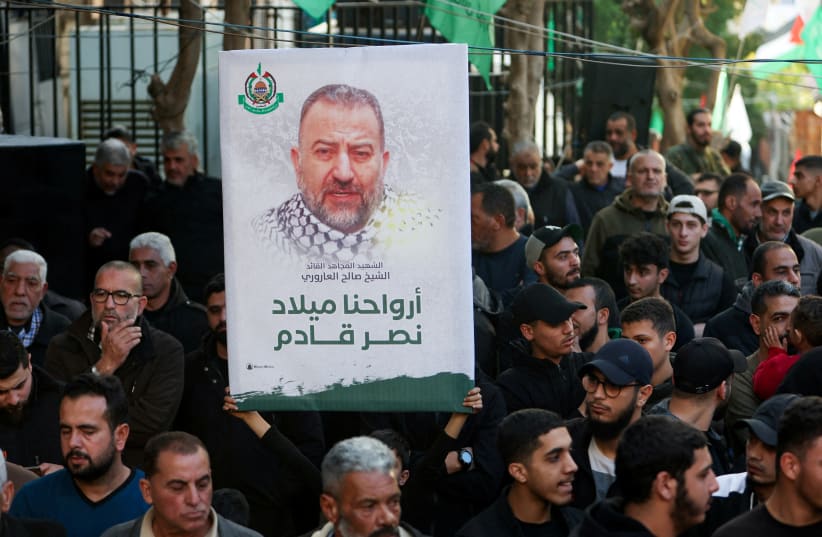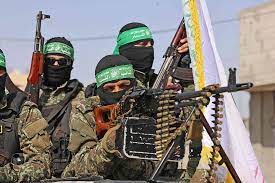Opinion
Striking back: Israel’s bold message through recent high-profile assassinations

Ultimately, the events of this week signal a clear message: No matter how secure an enemy might feel, no matter how hidden or protected, Israel’s reach is long.
In September 1972, prime minister Golda Meir convened a meeting of cabinet ministers and security officials to approve a secret operation called “Wrath of God.” Days earlier, 11 Israeli athletes had been tragically murdered on the sidelines of the Olympics in Munich by Palestinian terrorists, and Meir had given the green light for an Israeli mission of retribution.

It was a targeted assassination campaign that sent the Mossad’s top unit, Kidon – Hebrew for bayonet – to hunt down all the terrorists involved in the attack and its planning.
It would take years, some reports claim more than a decade, but it illustrated something simple in Israel’s ethos: No matter how long and no matter the location, Israel will reach those who seek its destruction.
It is a piece of history worth keeping in mind this week, after Israel killed Hezbollah military commander Fuad Shukr on Tuesday night and then, allegedly, Hamas leader Ismail Haniyeh in the pre-dawn hours of Wednesday morning.
Within six hours, between 8 p.m. and 2 a.m. Israel settled the score with the man in Lebanon who orchestrated the firing of thousands of rockets into Israel over the last 10 months – including the one that murdered 12 children in Majdal Shams on Saturday – and with the man who oversaw, from afar, the October 7 massacre.
These were two strikes in two capital cities, Beirut and Tehran, that were believed to be off-limits. Carrying them out in the span of just a few hours sent a very strong message, not just about Israel’s intelligence and operational capabilities, but also about its resolve and determination to strike at whoever raises a hand against it.
It was a reminder of the way Israel once was, the country with the military and intelligence agencies that could reach an enemy, no matter what was needed and no matter where in the world that person was hiding. It was a reminder of the Israel that people believed in, before the military and intelligence disasters of October 7.
The elimination of both these men, though, is much more than just settling a score; it is also about undermining the Hezbollah and Hamas capabilities while sending an important message to Israel’s enemies, that there is no place they are immune.
Shukr has long been in Israel’s sights and had a $5 million bounty on his head in the United States for his involvement in the 1983 bombing of the Marine barracks in Beirut that killed 241 US servicemen. He was Hezbollah’s top military commander, second-in-command to Hassan Nasrallah, to whom he also served as a personal advisor.
The decision to target Shukr as the response to the Majdal massacre shows the complexity Israel continues to face when it comes to Hezbollah.
Israel faces complexity
When Prime Minister Benjamin Netanyahu returned to Israel from Washington on Sunday and convened the security cabinet, some of the ministers came with hawkish and aggressive proposals. Ministers Bezalel Smotrich and Itamar Ben-Gvir had made no secret of their requests to bomb significant Hezbollah targets and even declare an all-out war aimed at degrading the Lebanese group’s capabilities until it completely stopped its attacks on the North.
On the other hand, Netanyahu has long been wary of a larger Middle East war, and he no doubt heard as much from President Joe Biden and Vice President Kamala Harris, when he met them last Thursday.
Eliminating Shukr was something of a compromise. On the one hand, it is a significant blow and has the potential to lead Hezbollah to retaliate aggressively. On the other hand, it can also be viewed as precise, focused, and isolated. It is a way for Israel to say it did something big to retaliate for the murder of the 12 children but that it does not want a wider conflict. The ball is now in Hezbollah’s court.
This is obviously a gamble, but one that Israel apparently felt safe taking; assessing, it seems, that Hezbollah would get the message and close this round.
That was all true until six hours later, when an explosion rocked an IRGC compound in Tehran and Haniyeh, the veteran Hamas leader, was killed. The assassination of Haniyeh is not what is interesting – he has deserved to die for years and even more so since October 7. What is interesting is the timing and the location. Killing Haniyeh right after Shukr’s death connected the Hamas leader’s killing to the retaliation to the Majdal Shams massacre, even though the missile was fired by Hezbollah and not by Hamas.
The reason for the connection is because of the location where he was killed, Tehran, the sponsor of both Hamas and Hezbollah. Killing Haniyeh in Tehran immediately after the inauguration of Iran’s new president Masoud Pezeshkian was meant to send a much louder message to Iran that its culpability in all of the attacks against Israel has not been ignored.
Haniyeh was not an Iranian official, but the attack in the center of Tehran on the day of the inauguration was meant to show Iran how vulnerable it is, how deep Israel has penetrated its military and intelligence defenses, and how the ayatollahs should keep that in mind as they continue green-lighting attacks against Israel.
The question is what happens next? By the time you are reading this, it is possible that Iran has already retaliated, either directly or through its proxies in Lebanon, Yemen, Iraq, and Syria. It could respond as in April, when it unleashed a direct missile and drone assault against Israel, or it could try to attack an Israeli or Jewish target overseas, something it has done successfully in the past, like in Burgas, in 2012, or Buenos Aires, in 1992. It could also try both.
If Hezbollah, for example, decides to respond by firing a barrage of missiles at Tel Aviv, Israel will need to again decide how to respond – will it swallow the attack if the missiles are intercepted by David’s Sling or Arrow interceptors, or will it feel compelled to retaliate again, continuing the cycle?
What about an Iranian attack?
If Tehran launches a massive direct attack, Israel will also need to decide what to do. On the one hand, if almost all the missiles are intercepted again, will Israel need to respond? Or will it still feel the need to do something and maybe even escalate, using the attack as justification to launch even more extensive strikes in Iran, something the regime definitely does not want?
These are just some of the scenarios that are being gamed out right now in Jerusalem, Tehran, Beirut, and Gaza. Everyone is analyzing and trying to predict what the other side will do.
And then there is the question of how the Haniyeh hit will impact the hostage negotiations. On the one hand, it is possible that it will undermine the talks and push Hamas to toughen its demands.
On the other hand, it has the potential to expedite the talks, with the Hamas leadership now concerned that the longer they wait, the greater the chance that more senior members can also be eliminated.
Does Yahya Sinwar care about all of this from his Gaza tunnel? Difficult to know, although one thing is certain, he knows the value of the hostages and that the more of them who remain alive, the greater concessions he can extract from Israel.
Ultimately, the events of this week signal a clear message: No matter how secure an enem

























